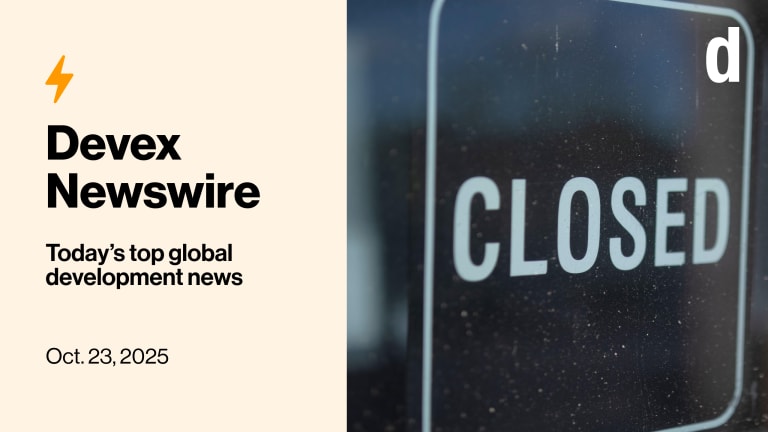Paul Polak: Always curious, always learning
Age has not slowed Paul Polak, who, at 81, is leading three social ventures, with 10 more in the pipeline. We spoke with the visionary and social entrepreneur who shared the importance of always learning new stuff and what energizes him.
Most people retire at the age of 65. Paul Polak, however, is not most people. The former psychiatrist — Polak holds a medical degree and was a practicing psychiatrist for 23 years — founded iDE in 1982, an international nonprofit that uses market-based solutions to address poverty. The organization claims to have lifted nearly 20 million $1-a-day, one-acre farmers out of poverty by making low-cost irrigation technology available and giving them access to markets for their crops. After a “painful three-year process,” Polak left iDE — a company he ran for 25 years — but not to retire. In 2007, Polak founded D-Rev: Design Revolution, a nonprofit design incubator for technologies targeting customers living on less than $4 a day. Just a short year after, and applying the lessons learned from iDE, he then founded the first of what Polak calls “frontier multinationals,” for-profit companies that aim to address basic needs at the bottom of the pyramid by selling products that are cheap enough for $2-a-day customers to purchase and install. There are now three such companies — Spring Health, Transform Energy and SunWater. Spring Health, a company that sells affordable safe drinking water to villagers through local kiosks, is currently being implemented in India. Transform Energy, which focuses on developing green alternatives to coal and charcoal, and SunWater, which is developing a solar pumping system, are currently in the beta test stage. Each of these three companies was designed to “transform the livelihoods of 100 million customers, generate $10 billion in revenues and attract significant international commercial capital investments.” The octogenarian currently leads the companies developing green alternatives to coal and charcoal and solar-powered power pumps for farmers, and is actively involved in everything — from product development to partnerships. And although he’s no longer running iDE, the serial entrepreneur remains a member of the board. He is also on the board of advisers for D-Rev, and is the chairman of the board at Spring Health, a company that sells affordable safe drinking water to rural Indians through local kiosks. Polak is no passive board member, however. He travels to India four times a year not just to meet the Spring Health team there, but also to talk to the communities the company serves. And in between these ventures, the peripatetic entrepreneur has managed to release two books. Where does he find the inspiration and energy to do all these? Learn and start from scratch In 2011, Polak famously told an audience at a TEDxMile High talk that he “felt like an 18-year-old virgin in a 77-year-old body.” This year, during a keynote address at the BoP World Convention & Expo in Singapore, he said he’s “slept around a little” but he stills feels like a virgin because there are many undeveloped markets for bottom-of-the-pyramid customers and “so much we all have to learn especially me about how to do it effectively.” “The exciting process for me is learning new stuff,” Polak, who turned 81 this month, told Devex. Polak is a staunch advocate for talking to as many potential “customers” as possible to find out what exactly it is that they need and how best to address their concerns. He was a proponent of the “don’t bother” trilogy, a design principle that guides the way he develops projects: If you haven’t talked to at least 25 potential customers, if it can’t pay for itself within the first year and if it can’t reach a million people, then don’t bother. The visionary has since revised that principle from reaching a million people to 100 million customers. Talking to people and learning about their needs, however, is always the first step. “It doesn’t matter what you’ve learned in the past,” Polak noted. The problems you see in a village may be the same as in 10,000 other villages, but you’re still in a new area so you still have to start from scratch. “If you feel like … you know everything then you’re not likely to be involved in the great transformative process.” And Polak does admit to constantly being surprised about the things he learns, whether from the villagers he meets or the people in his companies. It is through these conversations that he learned about the connection between coal and press wallahs, or servants, in India. Many of the middle-class Indians living in urban areas send their washed clothes to press wallahs for ironing. These press wallahs use a special type of iron with a space in the bottom for coal. Each of them iron about 200 pieces of clothing a day and go through roughly 20 coals a week. Currently, the press wallahs pay about 75 cents for every kilogram of coal. One of Polak’s companies, Transform Energy, is currently beta testing a green alternative to coal using waste biomass and invasive species of plants. Through torrefaction, a process where dry biomass is heated to a temperature of about 300 degrees Celsius for three hours in the absence of oxygen, the waste materials and invasive plants can be turned into briquettes that can be used in lieu of coal and charcoal in commercial furnaces and utility plants. These torrefied briquettes weren’t conceptualized for press wallahs. But learning about the connection between press wallahs and coal opened up a new market for Transform Energy — and a new way to service the bottom of the pyramid. “You have to be very curious,” Polak stressed, noting that it is important to really get to know what the people in the village need, where you could enter in the market “and make it better for the people who are using the coal and making it better for the people who are working for the company and actually make a profit.” ‘The work is energizing’ Polak has contributed significantly to lifting millions of people out of poverty — and he continues to do so. The work that he does seems a lot for any one person — his average workweek extends to 80 hours — more so for someone who just turned 81. “It’s not really a question of finding energy,” Polak quipped, adding that he’s always had high energy. But he does note that because he is very committed and passionate about the work he does, “the work is energizing.” And it’s not just the conversations he’s had with people in villages that give him energy. The tireless development professional currently participates in at least one forum or convention every month, delivering speeches and keynote addresses to packed audiences. Last month, for instance, Polak delivered one of the keynote addresses at the BoP World Convention & Expo in Singapore. Next week, he will deliver the keynote address at the opening plenary of the Scaling Impact in Inclusive Market Systems in Arlington, Virginia. Apart from being able to share his advocacy and passion to more people, the vibe Polak gets from the audience at these conferences energizes him as well. “The practice of learning is really energizing. [If] you don’t really know something, you’ve got to learn it as you go along. You’re quite willing to ask stupid questions as you get more information.” --— Paul Polak “I don’t know how much time I have. At the age of 81, you’re not going to live forever,” Polak said, “But I’ll keep going.” While he’s currently limiting himself to three companies right now, he has up to 10 other ventures that are in various stages of being implemented. Once these first three become successful and prove that the business model works, Polak plans to create a $100 million investment fund and a platform to develop more such companies. In addition, Polak has started developing innovations for at least three other companies that will serve bottom-of-the-pyramid customers: one to provide affordable education, another to supply low-cost health services at scale and a third to sell cheap, nutritious food. “I see literally hundreds of opportunities for creating transformative new ventures,” Polak said. “So that’s what I’m really working on and I’ll keep working on that for the rest of my life.” So what’s next for the man with the seemingly endless supply of energy? Check out more insights and analysis provided to hundreds of Executive Members worldwide, and subscribe to the Development Insider to receive the latest news, trends and policies that influence your organization.
Most people retire at the age of 65. Paul Polak, however, is not most people.
The former psychiatrist — Polak holds a medical degree and was a practicing psychiatrist for 23 years — founded iDE in 1982, an international nonprofit that uses market-based solutions to address poverty. The organization claims to have lifted nearly 20 million $1-a-day, one-acre farmers out of poverty by making low-cost irrigation technology available and giving them access to markets for their crops.
After a “painful three-year process,” Polak left iDE — a company he ran for 25 years — but not to retire. In 2007, Polak founded D-Rev: Design Revolution, a nonprofit design incubator for technologies targeting customers living on less than $4 a day.
This story is forDevex Promembers
Unlock this story now with a 15-day free trial of Devex Pro.
With a Devex Pro subscription you'll get access to deeper analysis and exclusive insights from our reporters and analysts.
Start my free trialRequest a group subscription Printing articles to share with others is a breach of our terms and conditions and copyright policy. Please use the sharing options on the left side of the article. Devex Pro members may share up to 10 articles per month using the Pro share tool ( ).
As former Devex editor for business insight, Aimee created and managed multimedia content and cutting-edge analysis for executives in international development.






